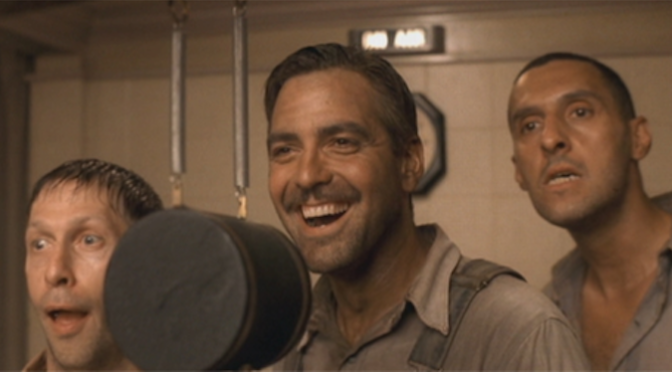The past few years have seen no shortage of films structured entirely around a sole character. 2009 had Moon, 2010 had 127 Hours and Buried, and the past year alone had two Oscar nominees in Gravity and All Is Lost. Each of these films hangs entirely on the neck of one actor or actress, usually with some help from the voices of unseen characters or a well-placed flashback. Gravity was helped along by the simple fact that it has what may be the greatest special effects of any space movie ever. Also: George Clooney.
Locke doesn’t have George Clooney. In fact, Locke doesn’t have the set-up that you might come to expect from a one-man show: no outer space VFX or otherwise stark settings, no survival story in a desert or on a boat or six feet under. All Locke has is a car, a bluetooth phone, and Tom Hardy in the central role of construction foreman Ivan Locke. Despite (or because of) the bare-bones constituency at work here, Locke is still easily as engaging as any of the aforementioned predecessors.
When Ivan Locke gets in the car and takes off on a two-hour drive to London, he has a list of calls to make and things to accomplish along the way. These items include breaking the news to his wife that he cheated on her and is en route to the birth of his child by another woman; fielding distressed calls from said woman as she endures complications in labor; training an underqualified drunk to complete the gargantuan tasks his foreman position requires while he absconds; and explaining his sudden absence to his children, his boss, his boss’s bosses, and pretty much everyone else he happens to know. His singular goal, you may have guessed, is to not have all of this go to shit.
Importantly, Locke himself is an extremely well-drawn character. Writer and director Steven Knight sits behind the camera for the first time with Locke, but his writing credentials include Eastern Promises and Dirty Pretty Things. While Ivan could have easily just been a regular nobody in a car enduring the consequences of his mistake, we’re instead treated to a man who preaches precision, practicality, logic, reason. He’s an intelligent and levelheaded worker well aware of his own faults in the situation – the question is whether his mantra of exactness will create an exit to his predicament or force him deeper into the hole.
By portraying Ivan’s work life and his family life as two very distinct parts of the same character, Knight and Hardy answer that question twice. Yes, he loses his job – but the project he abandoned still has legs due to his careful steering of the players involved after his departure earlier in the evening. The proper trucks will enter the proper gates and pour the proper amount of the proper kind of concrete into the proper place, and all will be well.
A family and a home are a tad more complicated. Again, Ivan is a man who consistently speaks (and thinks) in the most accurate terms possible – he corrects his employee at the mention of 200 trucks (“218 trucks”) and his boss at the mention of his position of the past ten years (“nine years”). Later, as his wife comes to terms with the fact that Ivan has been unfaithful to her, she can only find one response to his insistence that it only happened one time: “The difference between once and never is everything.” Ivan, trapped in his ways, can only concede the point with silence.
Steven Knight is a writer to watch after Locke, as the details are more carefully attended to in this tight screenplay than any other in recent memory. Even Ivan’s last name “Locke” and his work associations with cement and concrete play into the themes of being steadfast, solid, immovable in the face of tough odds. It goes without saying that Tom Hardy more than pulls his weight in this film, and he continues to be an absolute force in the acting world – I’ll look forward to everything he does next, and to rewatching Locke in the future.






